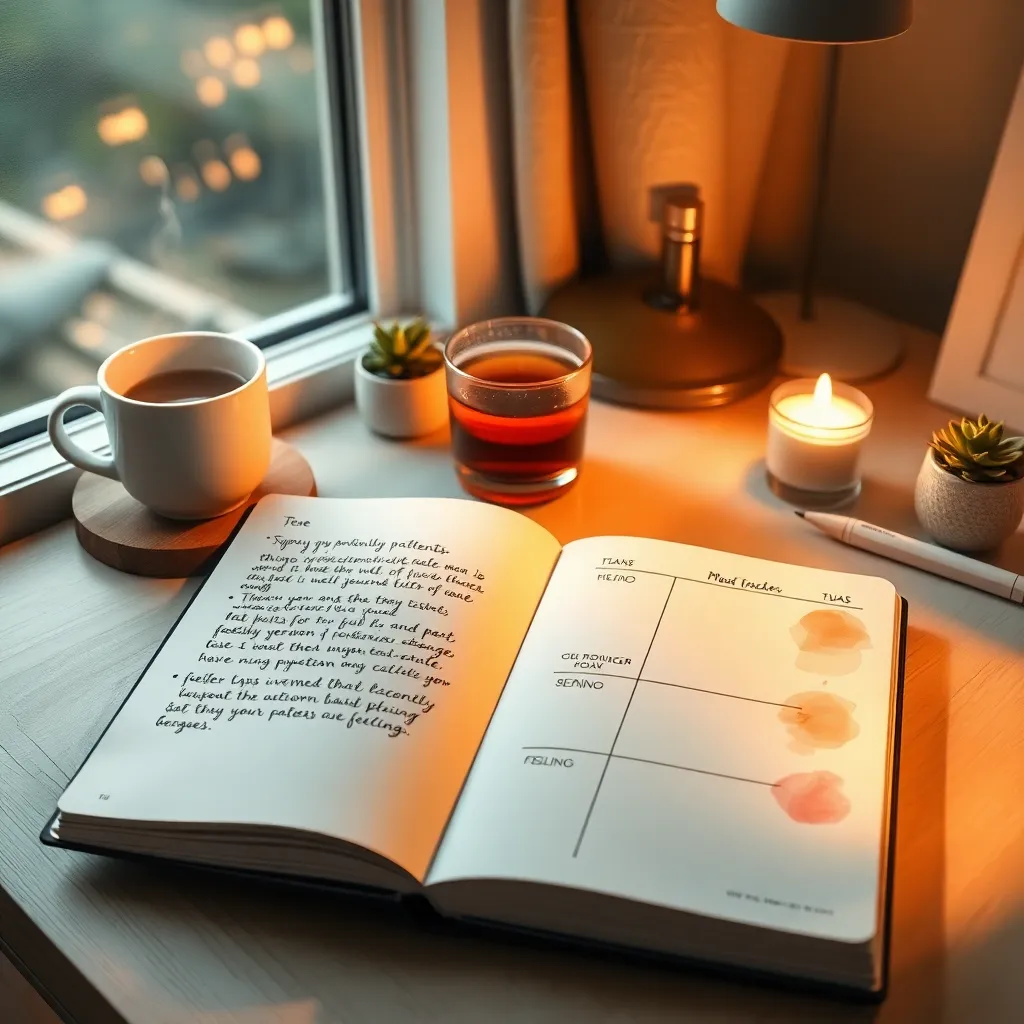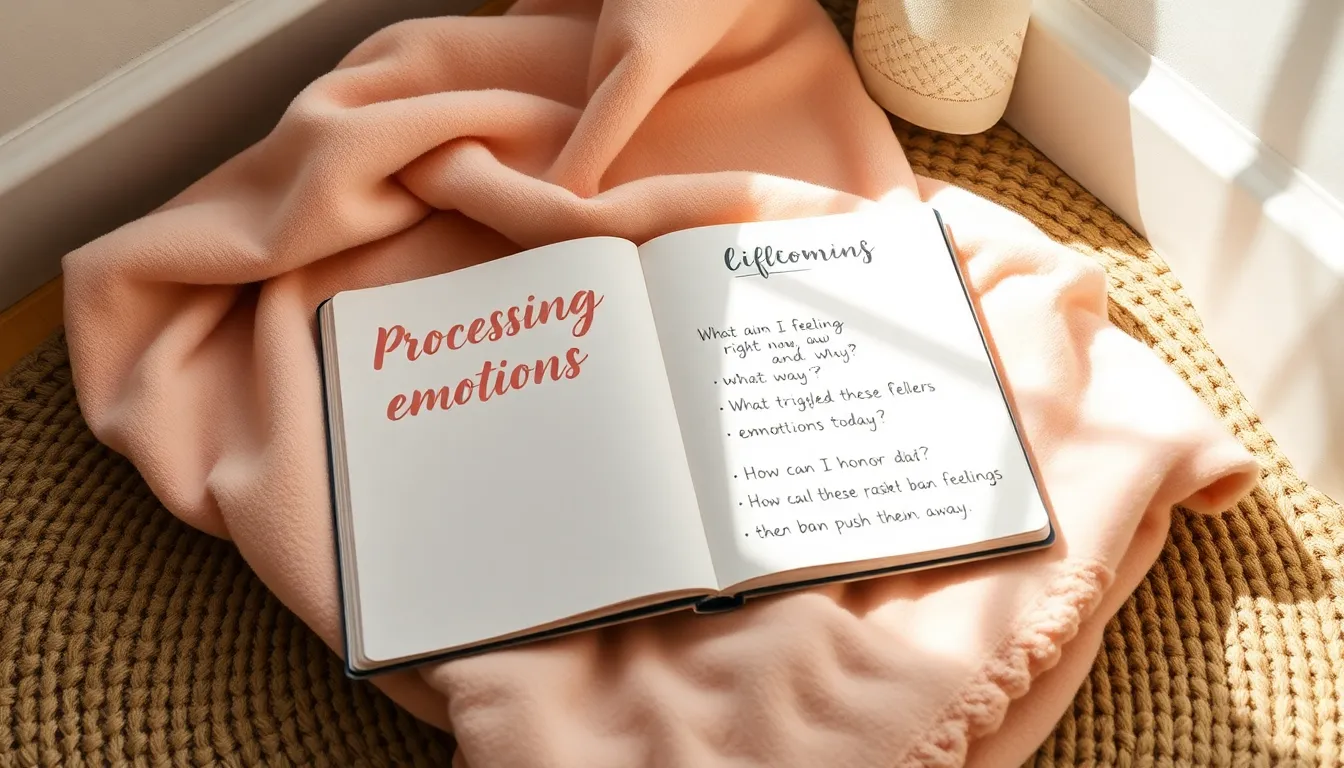Navigating through tough emotions can be challenging, but journaling offers a gentle path to understanding and healing. By putting pen to paper, you create a safe space to explore and process feelings that might otherwise feel overwhelming.
Embrace journaling, and discover clarity and calm in your emotional landscape. This practice will empower you to transform chaos into insight, nurturing your well-being.
Create a Safe Writing Space

Create a sanctuary for your thoughts by choosing a quiet, comfortable spot. Ensure privacy to freely explore emotions without judgment.
Begin with prompts like:
- “What emotions am I feeling right now?”
- “What do I need to feel safe today?”
Use these to gently guide your reflections.
Identify Your Current Emotions

Start by taking a deep breath and asking yourself, “What am I feeling right now?” Write down the first emotion that comes to mind. This simple prompt helps you connect with your immediate emotional state.
To delve deeper, consider using prompts like:
- “Why do I feel this way?“
- “What triggered this emotion?“
These questions encourage reflection and clarity, allowing you to process complex feelings with compassion.
Explore Thoughts Through Free Writing

Free writing helps unlock buried feelings. Set a timer for 5 minutes and write without pausing. Let thoughts flow without judgment.
Try prompts like: “What am I avoiding?” or “How does this emotion feel in my body?” Explore these to gain insights and release tension.
Reflect on Emotional Patterns

Identify recurring feelings by noting mood shifts in your journal. Track triggers and responses to understand emotional cycles.
Use prompts to deepen reflection:
- When did I last feel this way?
- What patterns do I notice?
This insight can guide healing and growth.
Set Intentions for Healing

Start by setting a healing intention in your journal. Focus on what you need to release or embrace. A simple prompt: “What do I need to let go of to heal today?” can guide your reflection.
Choose a quiet moment to write. Visualize your healing journey and jot down the first steps. Consider the prompt: “How can I nurture my mind and body this week?” to anchor your process.
Conclusion: Creating Beautiful Outdoor Spaces
In navigating the complex landscape of relationships, journaling emerges as a powerful tool to process difficult emotions. Firstly, it encourages self-reflection, allowing individuals to gain clarity on their feelings. Secondly, it fosters empathy by helping you understand your partner’s perspective. Thirdly, journaling enhances communication, as articulating your thoughts on paper can lead to more constructive dialogues. Fourthly, it aids in identifying patterns in recurring conflicts, offering insights into deeper issues. Lastly, journaling promotes emotional regulation, providing a safe space to vent and process before reacting.
As your next step, take just five minutes today to jot down your thoughts about a recent emotional experience. This simple act can transform your understanding and approach to relationship challenges. I encourage you to bookmark this article as a guide to revisit these strategies whenever needed.
Remember, the journey to relationship success is ongoing, and with each entry in your journal, you move closer to deeper connections and understanding. Your commitment now can lead to a more harmonious, fulfilling partnership in the future. Save this article to empower yourself with these valuable insights whenever you need a reminder of the transformative power of journaling in relationships.

